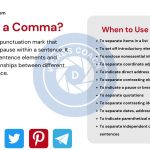Difference Between Which And In Which
Both “which” and “in which” function as relative pronouns in English grammar, but they have distinct uses:
“Which” offers more general information about a noun or pronoun. “In which” narrows down the focus to a specific place or time.
Meaning of which
“Which” has a few different meanings depending on how it’s used in a sentence. It can be used with singular or plural nouns. In non-essential clauses, it’s often followed by a comma. In formal writing, it’s generally preferred over “that” for non-essential clauses referring to things (not people or animals).
Here’s the most common uses:
1. Interrogative Pronoun (Asking a question):
- Used in questions to ask about a specific choice out of a limited set of options.
- Examples:
- Which shirt do you like better, the red one or the blue one?
- Which movie are we watching tonight?
- Which countries are competing in the Olympics this year?
2. Determiner (Making a question):
- Similar to the interrogative pronoun but used before a noun to introduce a question.
- Example:
- Which color paint should I use for the living room?
- Which color paint should I use for the living room?
3. Relative Pronoun (Connecting clauses):
- Introduces a non-essential clause (information that can be omitted without affecting the core meaning) that provides additional details about a previously mentioned noun or pronoun.
- Examples:
- The book which I borrowed from you is fantastic. (We already know it’s the borrowed book)
- The house which has a red door is mine. (We know it’s the house being referred to)
Meaning of In Which
“In which” functions specifically as a relative pronoun in English grammar. It’s used to introduce a non-essential clause that specifies a place or time mentioned earlier in the sentence.
“In which” can be used with singular or plural nouns referring to places or times. It’s often followed by a comma to separate the dependent clause from the independent clause. While not strictly necessary, “in which” can sometimes add a touch of formality to your writing.
Here’s its meaning and usage:
Function:
- Connects a dependent clause (the “in which” clause) to an independent clause.
- Provides additional information about a place or time, but this information is not essential for understanding the main point of the sentence.
Key Points:
- Focuses on Location or Time: Unlike “which” that offers general information, “in which” narrows down the focus to a specific place or point in time.
- Non-Essential Clause: The information provided by the “in which” clause can often be removed without affecting the core meaning of the sentence.
- Formal Tone: “In which” is generally considered more formal than simply using “where” when referring to a location or time.
Examples:
- The city in which I grew up has a beautiful coastline. (Specifies the exact city)
- The time in which this happened is important. (Focuses on the specific time)
- The library in which I found this book has a large collection of rare manuscripts. (Identifies the specific library)
Difference Between Which And In Which
| Feature | Which | In Which |
| Usage | Refers to one or more items from a specified set; introduces relative clauses | Refers to a context, place, or situation; introduces relative clauses |
| Function | Specifies or adds information about a subject | Specifies context, location, or situation |
| Introduction | Can introduce additional information about a noun | Introduces relative clauses emphasizing context |
| Order | Can appear at the beginning or middle of a sentence | Typically follows the noun it refers to |
| Preposition | No preposition | Includes the preposition “in” |
| Relativity | Introduces relative clauses directly | Introduces relative clauses with an emphasis on context |
| Examples | “She has a cat, which is very friendly.” | “He lives in a house in which he grew up.” |
| Possessive Form | Not used in a possessive form | Not applicable |
To summarize, “which” and “in which” are both used as relative pronouns to introduce subordinate clauses in English grammar. “Which” adds extra information about a noun or pronoun in the main clause, while “in which” specifically refers to a place or situation mentioned in the main clause. Knowing the distinctions between the two can aid in selecting the correct one for a sentence.





